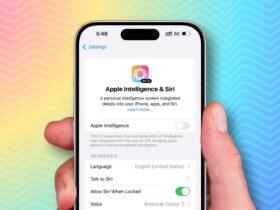Daftar Isi
TikTok has become a global phenomenon, captivating millions with its short, engaging videos. However, recent developments suggest that a ban on the platform is becoming increasingly likely. This situation raises significant questions about the app’s future and its impact on users worldwide.
Why TikTok Faces Potential Bans
The growing likelihood of a TikTok ban stems from concerns over privacy, security, and geopolitical tensions. These issues have put TikTok under intense scrutiny:
- Data Privacy Concerns: TikTok collects a substantial amount of user data, which has raised alarms about potential misuse.
- National Security Threats: Governments worry that the app could share sensitive information with foreign entities.
- Political Pressures: TikTok’s parent company, ByteDance, has faced mounting pressure to divest its operations in specific countries.
Countries Considering a Ban

Several nations have already imposed restrictions or are actively debating bans on TikTok:
United States
The U.S. has been at the forefront of discussions about banning TikTok. Lawmakers cite concerns over national security, leading to legislative proposals and potential executive actions.
India
India implemented a complete ban on TikTok in 2020, citing national security concerns and the app’s connection to Chinese ownership.
European Union
The EU has expressed concerns about TikTok’s compliance with data protection regulations. Investigations are ongoing to determine its future in the region.
Australia
Australian lawmakers have raised issues about data security, sparking debates about whether TikTok poses a risk to national interests.
The Impact of a Ban
A potential ban on TikTok could have far-reaching consequences for users, creators, and businesses:
- For Users: Millions of individuals rely on TikTok for entertainment and social interaction. A ban would disrupt their routines and access to content.
- For Creators: Influencers and content creators who have built their careers on TikTok would face significant challenges in transitioning to other platforms.
- For Businesses: Many brands use TikTok for marketing and engagement. Losing the platform could hinder their outreach efforts.
Alternatives to TikTok
If TikTok were to be banned, users and creators might turn to alternative platforms to fill the void:
- Instagram Reels: Offering similar short-form video features, Instagram Reels is a popular choice for TikTok users.
- YouTube Shorts: YouTube’s answer to TikTok provides a platform for short, engaging videos.
- Snapchat Spotlight: This feature allows creators to share quick videos in a similar format.
- Other Regional Apps: In some countries, local apps have emerged as alternatives to TikTok.
How TikTok Is Responding
To address the growing threat of bans, TikTok has taken several measures:
- Transparency Efforts: The company has pledged greater transparency in data handling and moderation practices.
- Data Localization: TikTok is working to store user data in local servers to alleviate security concerns.
- Engagement with Governments: ByteDance has engaged in discussions with governments to resolve regulatory issues and avoid bans.
The Future of TikTok
The uncertainty surrounding TikTok‘s future continues to grow. While the platform remains immensely popular, its survival depends on resolving these ongoing challenges. Whether through increased transparency, legal agreements, or structural changes, TikTok’s actions in the coming months will determine its fate.

































Leave a Reply